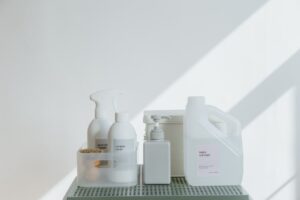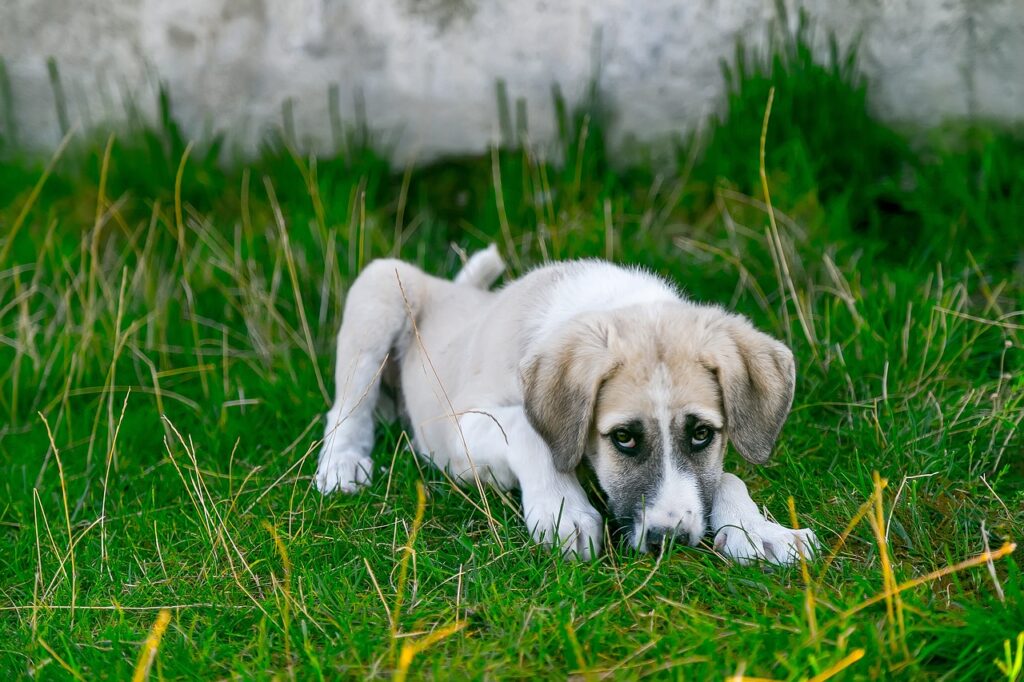As responsible pet owners, it’s our duty to ensure the safety and well-being of our furry friends. While we may be vigilant about keeping our homes clean and organized, there are several household products that can pose serious risks to our dogs.
It’s important to be aware of these potential hazards and take necessary precautions to keep our beloved pets safe.
In this article, we will highlight some common household products that can harm your dog, and why it’s crucial to be cautious.

Table of Contents
Household Products That Can Harm Your Dog
- Cleaning Products: Many household cleaning products, such as bleach, detergents, and disinfectants, contain toxic chemicals that can be harmful to dogs. Ingestion or even contact with these products can cause irritation, burns, and gastrointestinal issues in dogs. Some cleaning products also emit strong fumes that can irritate their respiratory system. It’s essential to store these products securely in cabinets or locked closets, out of your dog’s reach. When using cleaning products, ensure that your dog is kept away from the area until it’s thoroughly cleaned and well-ventilated.
- Human Medications: Human medications, including prescription and over-the-counter drugs, can be toxic to dogs. Painkillers, antidepressants, sleep aids, and even vitamins can pose a significant risk if ingested by dogs. Keep all medications, including pill bottles and blister packs, securely stored in cabinets that are inaccessible to your dog. Never give your dog any medication without consulting your veterinarian first, as certain human medications can be lethal to dogs even in small amounts.
- Pest Control Products: While it’s important to keep your home free of pests, many pest control products can be toxic to dogs. Insecticides, rodenticides, and flea/tick treatments can contain chemicals that are harmful to your dog if ingested, inhaled, or absorbed through the skin. Always follow the instructions provided by the manufacturer when using these products, and keep your dog away from treated areas until they are safe. Consider using pet-safe alternatives for pest control to minimize the risks to your furry friend.
- Foods Toxic to Dogs: Some human foods that we consume regularly can be toxic to dogs. Chocolate, coffee, alcohol, onions, garlic, grapes, raisins, and xylitol (a sweetener found in many sugar-free products) are just a few examples of foods that can be harmful to dogs. These foods can cause various health issues in dogs, ranging from gastrointestinal upset to liver failure or even death. It’s essential to keep all human food and beverages securely stored and avoid feeding your dog table scraps or foods that are not safe for them. Consult your veterinarian if your dog accidentally consumes any toxic food.
- Household Plants: While indoor plants can add beauty to our homes, some of them can be toxic to dogs. Plants such as lilies, azaleas, tulips, daffodils, and philodendrons can cause severe toxicity in dogs if ingested. Even chewing on the leaves, stems, or flowers of these plants can cause gastrointestinal upset, vomiting, diarrhea, and other health issues. Make sure to research and identify all the plants in your home and garden, and keep toxic plants out of your dog’s reach or consider replacing them with pet-safe alternatives.
Other Potential Hazards
In addition to these five common household products, there are several other potential hazards that pet owners should be aware of, including antifreeze, batteries, sharp objects, plastic bags, and small objects that can pose a choking hazard. It’s crucial to thoroughly inspect your home and ensure that all potential dangers are safely stored or removed from your dog’s reach.
In case of an accidental ingestion or exposure to any toxic household product, it’s essential to act promptly. Contact your veterinarian or a pet poison helpline immediately for guidance on what steps to take. It’s crucial not to induce vomiting or administer any home remedies without professional advice, as it can sometimes do more harm than good.
It’s All About Prevention
Prevention is key when it comes to keeping your dog safe from household hazards. Here are some tips on how to ensure the safety of your furry friend:
- Store all household products, medications, and chemicals securely in cabinets or locked closets that are out of your dog’s reach. Avoid leaving them unattended or within easy access.
- Use pet-safe alternatives for cleaning, pest control, and gardening products. Always read and follow the instructions provided by the manufacturer.
- Keep all human food and beverages securely stored and avoid feeding your dog table scraps or foods that are not safe for them.
- Research and identify all the plants in your home and garden, and keep toxic plants out of your dog’s reach or consider replacing them with pet-safe alternatives.
- Regularly inspect your home for potential hazards, such as small objects, sharp objects, plastic bags, and other items that can pose a choking or ingestion risk.
In addition to prevention, it’s crucial to ensure that your dog receives regular veterinary care. Regular check-ups, vaccinations, and parasite prevention are essential to maintaining your dog’s overall health and well-being.
Final Thoughts
In conclusion, as responsible pet owners, it’s our duty to be aware of potential household hazards that can harm our dogs. Cleaning products, human medications, pest control products, toxic foods, and household plants are just a few examples of common household products that can pose serious risks to our furry friends.
Taking necessary precautions, such as securely storing these products, using pet-safe alternatives, and regular home inspections, can help prevent accidental exposures and keep our dogs safe. In case of an accidental ingestion or exposure, it’s crucial to seek professional veterinary advice immediately.
By being vigilant and proactive in protecting our dogs from household hazards, we can ensure that they live happy, healthy lives in a safe environment.
Remember, our dogs depend on us for their safety and well-being. So, take the necessary steps to create a pet-friendly home and prevent potential hazards.
Your furry friend will thank you for it with their wagging tail and unconditional love!


Dennis and Becca, have always shared a passion for man’s best friend. As dog enthusiasts, they put together articles that inform, engage, and captivate fellow dog lovers.